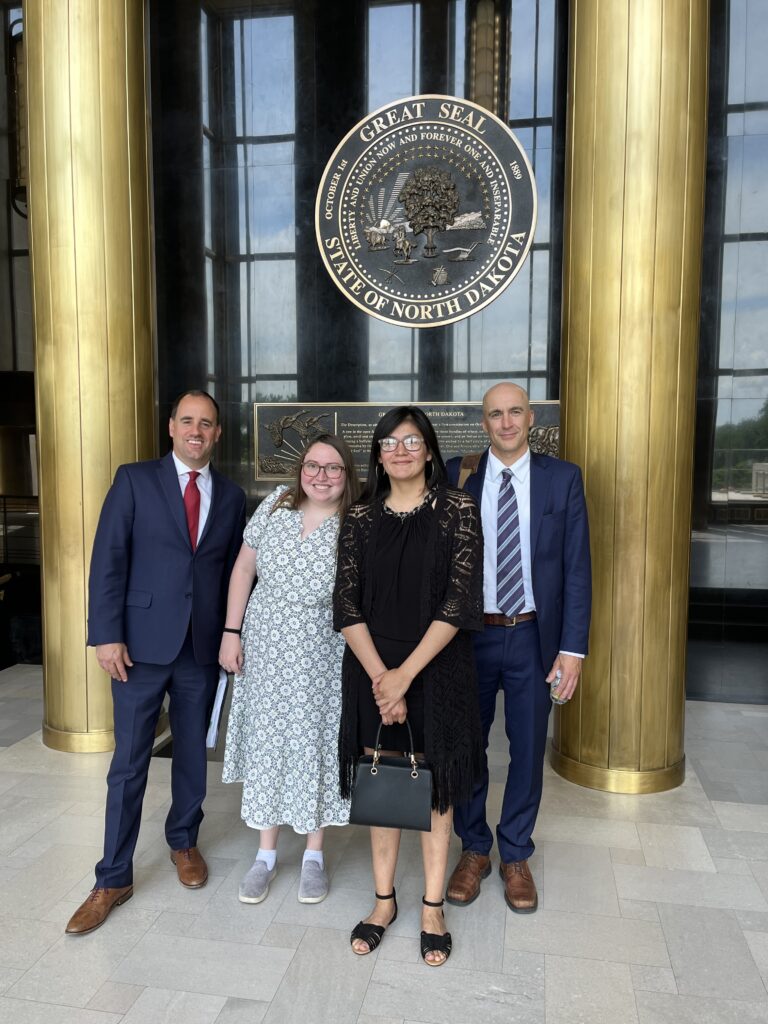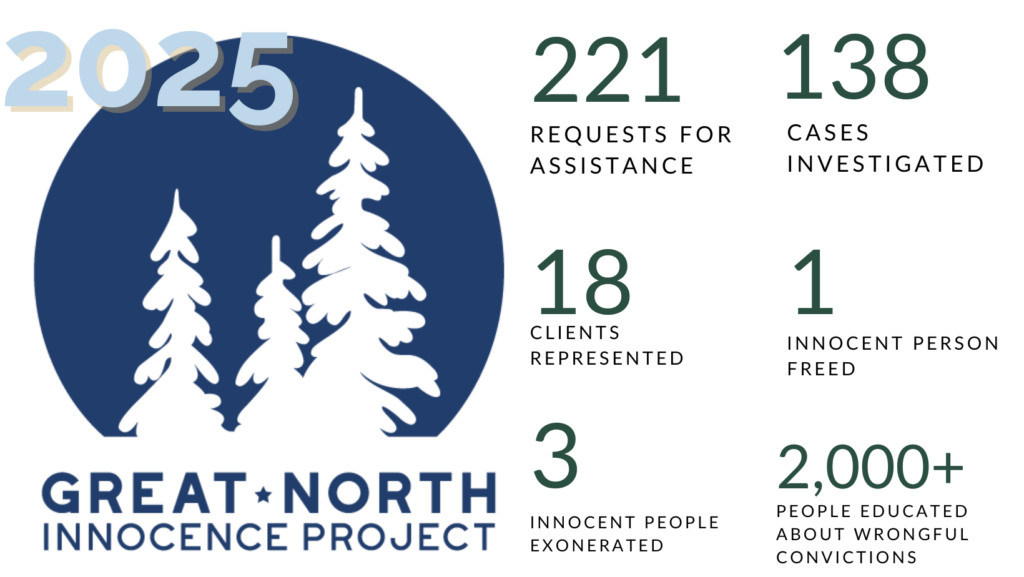The Great North Innocence Project frees and supports wrongfully convicted, innocent people—at no cost to them—and works to prevent future wrongful convictions and injustices through education and advocacy.
“It brings tears to my eyes when I think about how blessed I am to have the Great North Innocence Project’s support because nobody has ever fought this hard for me ever, and I appreciate that.”
— Ronnie Cooper, freed after 10 years wrongful incarceration
Our Story
Founded in 2001 as the Innocence Project of Minnesota, our organization now represents clients and conducts advocacy and education across Minnesota, North Dakota, South Dakota, and beyond. On average, the Great North Innocence Project receives over 250 applications and investigates nearly 70 cases of possible wrongful convictions each year. Learn more about our mission and vision.
Over the course of our organization’s history, we have freed 14 innocent men and women from wrongful incarceration, and nine of those people were freed since 2020. Our team has also led the passage of six pieces of criminal justice reform legislation to address the root causes of wrongful convictions and ensure exonerees are able to access compensation for the injustice they endured.

Our Impact
